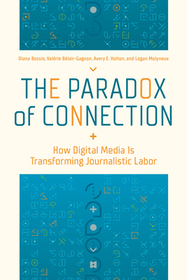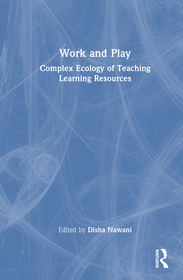
Artificial Intelligence in Food Science
Transforming Food and Bioprocess Development
- Publisher's listprice EUR 232.99
-
96 632 Ft (92 031 Ft + 5% VAT)
The price is estimated because at the time of ordering we do not know what conversion rates will apply to HUF / product currency when the book arrives. In case HUF is weaker, the price increases slightly, in case HUF is stronger, the price goes lower slightly.
- Discount 20% (cc. 19 326 Ft off)
- Discounted price 77 306 Ft (73 625 Ft + 5% VAT)
Subcribe now and take benefit of a favourable price.
Subscribe
96 632 Ft

Availability
printed on demand
Why don't you give exact delivery time?
Delivery time is estimated on our previous experiences. We give estimations only, because we order from outside Hungary, and the delivery time mainly depends on how quickly the publisher supplies the book. Faster or slower deliveries both happen, but we do our best to supply as quickly as possible.
Product details:
- Publisher Elsevier Science
- Date of Publication 22 September 2025
- ISBN 9780443264689
- Binding Paperback
- No. of pages625 pages
- Size 276x216 mm
- Weight 450 g
- Language English 698
Categories
Long description:
Artificial Intelligence in Food Science: Transforming Food and Bioprocess Development covers the AI and machine learning techniques that are reshaping the food science landscape, introducing innovative solutions to improve food processing, safety, and sustainability. This book delves into the transformative potential of these cutting-edge technologies, exploring how they optimize food production, enhance bioprocess development, and tailor products to meet specific consumer needs. By integrating AI, researchers and industry professionals can address challenges such as resource efficiency and quality assurance, paving the way for a more sustainable and technologically advanced food system.
Beyond optimization, the book examines AI applications in predicting food trends, analyzing complex datasets, and developing personalized nutrition plans. It provides insights into how AI enhances food storage, packaging design, and even consumer engagement through predictive models. With detailed case studies and forward-thinking perspectives, this book serves as a comprehensive guide for harnessing AI's power to revolutionize food science and bioprocess innovations.
Table of Contents:
Section 1: Learning Approaches and Applications
1. Data Collection and Preprocessing for AI and ML Applications in Food Science
2. Supervised Learning Techniques in Food Science: Predictive Modeling and Classification
3. Unsupervised Learning Techniques in Food Science: Clustering and Dimensionality Reduction
4. Deep Learning Approaches for Food Science and Bioprocess Optimization 5.Reinforcement Learning in Food Industry Applications
Section 2: Ingredient discovery, Recipe and New Product Development
6. Virtual Product Testing and Simulation: Reducing Time and Costs in New Product Development
7. Computational intelligence for Plant-Based Alternatives: Transforming Ingredients and Developing Innovative Meat and Dairy Substitutes
8. AI and ML for Ingredient Discovery and Formulation Optimization
9. Technology-Enabled Smart Kitchen: AI Assistance for Recipe Development and Cooking Techniques
10. Flavor Profiling and Sensory Analysis using AI and ML
Section 3 Nutrition
11. Blockchain, IoT, fuzzy systems in Food Science and Bioprocess Development
12. Bioinspired optimization techniques in Food Industry
13. AI mediated modelling approach for nutritional aspects of food and bioproducts
14. Digital image analysis in Food and bioprocess industries
15. Advancement in Computational fluid dynamics in food processing
16. Shelf-life prediction through AI and ML
17. Personalized Nutrition: AI-driven Approaches for Tailoring Functional Foods to Individual Needs
18. Smart Packaging and Traceability: Ensuring Quality and Safety of Functional Food Products
Section 4 Quality Control, Food Safety and Processing
19. Quality Control and Inspection Techniques with AI and ML
20. Sensor Technologies and AI Integration for Real-time Monitoring of Food Quality Parameters
21. AI and ML in Food Safety Assessment: Rapid Detection of Contaminants and Pathogens
22. Chemometrics and Multivariate Analysis for Quality Control of Food Products
23. Machine Learning for Spectroscopic Analysis and Quality Evaluation of Food
24. Robotic Systems and Automation for Quality Inspection in Food Production
25. Traceability and Blockchain Technology: Ensuring Transparency and Authenticity of Food Quality
26. Case Studies: Successful Applications of AI and ML in Food Quality Control
27. AI and ML for Process Optimization in Food Manufacturing
28. AI and ML for Food Safety and Traceability
29. Robotics and Automation in Food Processing using AI and ML
30. IoT Integration and Smart Technologies in Food Systems
31. Blockchain Technology for Transparent Food Supply Chains: Enhancing Traceability and Reducing Waste
Section 5 Food Waste
32. AI and ML in Food Waste Analytics: Leveraging Data for Waste Identification and Quantification
33. Predictive Modeling for Demand Forecasting and Inventory Management to Minimize Food Waste
34. Dynamic Pricing Strategies: AI-Driven Approaches for Optimizing Sales and Reducing Food Waste
35. AI and ML for Supply Chain Optimization: Minimizing Losses and Maximizing Efficiency
36. Waste Utilization and Valorization: AI-Driven Approaches for Creating Value from Food Byproducts
37. AI and Robotics in Food Processing: Efficient Sorting and Handling to Minimize Waste
Section 6: Ethics, Compliance and future trends
38. Ethical Considerations and Data Privacy in AI and ML Applications
39. Case Studies and Success Stories: Real-world Applications of AI and ML in Food Science and Bioprocess Development
40. Challenges and Limitations of AI and ML in the Food Industry
41. Future Trends and Directions in AI and ML for Food Science and Bioprocess Development












